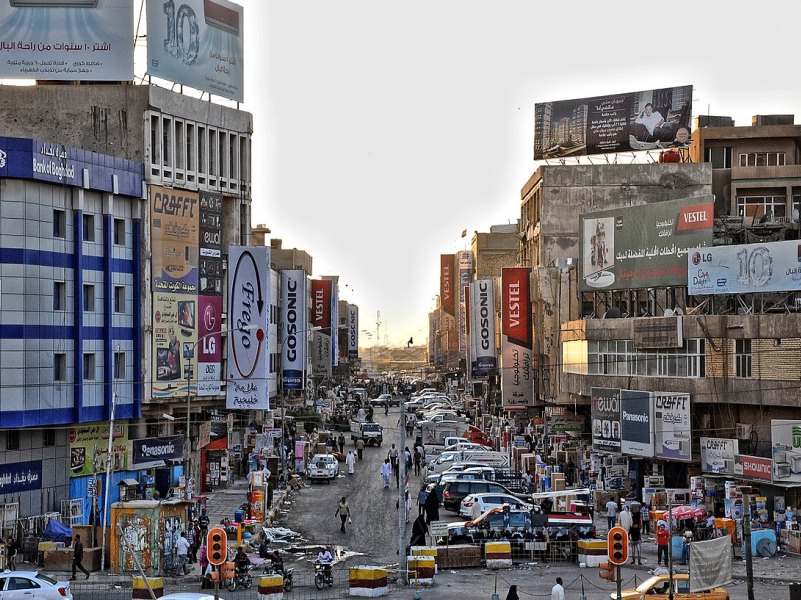 Kuwait Street in Basra. Photo: Ahmad Mahmoud Khodeir, Wikimedia Commons.
Kuwait Street in Basra. Photo: Ahmad Mahmoud Khodeir, Wikimedia Commons.
The dying down of Iraq’s October 2019 uprising against the country’s political system and its governing elites raises questions about what comes next. However, while many have explored the root causes and drivers of Iraq’s protest movements, comparatively little attention has been paid to the tactical and strategic decisions which activists make during mobilisation and after protests abate. This is a significant oversight, since these decisions have a major impact on future protest dynamics and Iraqi politics more broadly. Moreover, the strategic debates and decisions taken in Basra and other southern provinces like Dhi Qar have sometimes been crowded out of analyses by a focus on more prominent activists and protest groups in Baghdad.
To address this gap in the existing literature, this project explores how sequential phases of mass mobilisation in southern Iraq have led to an evolution in the tactical choices and broad strategic debates between different protest groups in the region. Protest event data (a unique database of several thousand protest events) and in-depth interviews with activists will be used to explain activists’ strategic decisions regarding cooperation and coalition building, whether and how to participate in formal politics, and the more granular tactical aspects of mobilising for protests in southern Iraq.
This project forms part of the Conflict Research Programme, funded by the UK Department for International Development to provide research and policy advice on how the risk and impact of violent conflict might be more effectively reduced through development and governance interventions.
Project Outputs
Research Team
Benedict Robin D'Cruz | Principal Investigator
Benedict recently completed his PhD at the University of Edinburgh. He is also a Visiting Fellow at the LSE Middle East Centre, where he is conducting research on Basra's protest politics for the Centre's Conflict Research Programme.